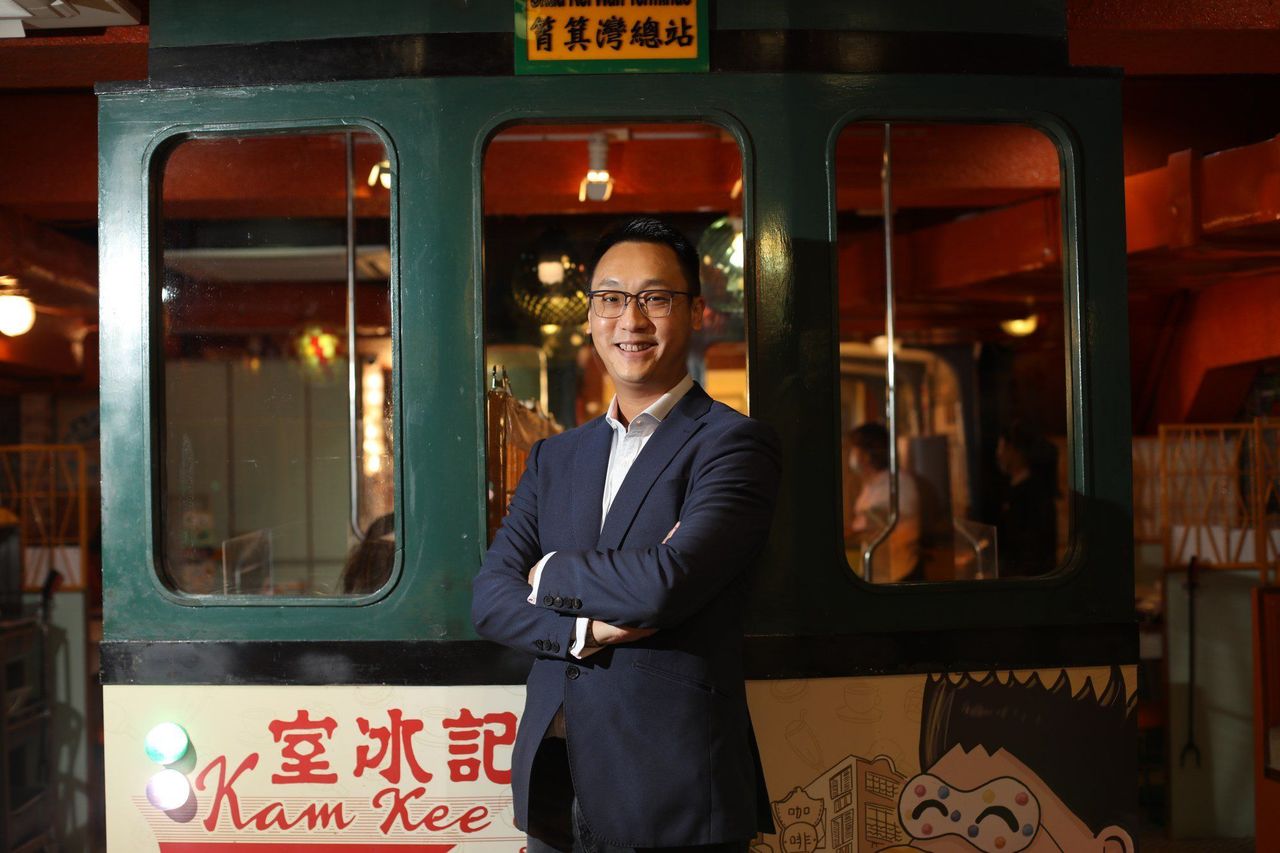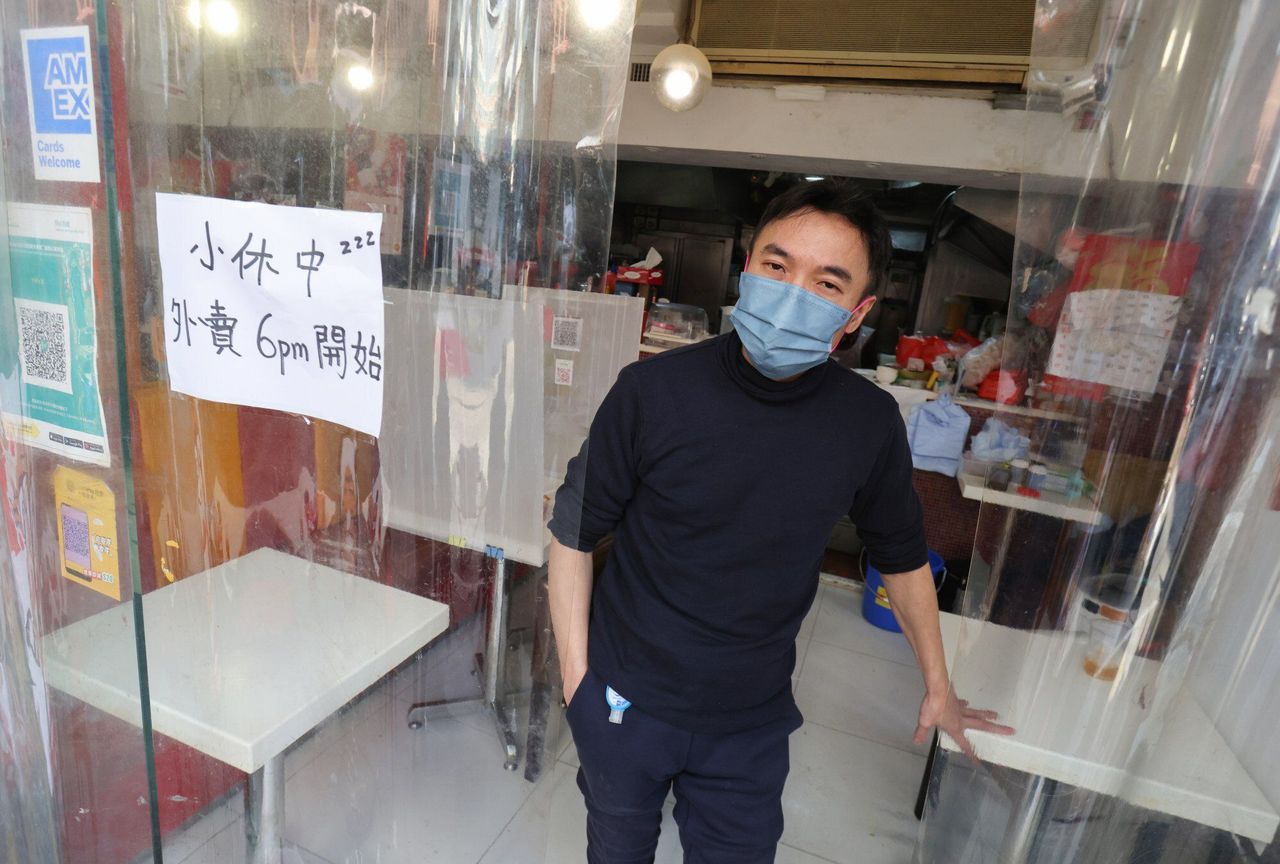Hong Kong News

Hong Kong businesses struggle to adopt vaccine pass scheme’s finer details
More than 16,000 licensed restaurants, shopping centres and other businesses across Hong Kong have been racing to prepare for the launch of a vaccine pass on Thursday, with many venues having struggled to understand the scheme’s finer details.
Ray Chui Man-wai, chairman of the Institute of Dining Art, said he believed only about 80 per cent of the city’s restaurants had a good understanding of the new rules and that it would take at least one week for eateries to sort out any initial complications created by the scheme’s launch.
Under the scheme, people aged 12 or above will be required to have taken at least one dose of a Covid-19 vaccine to enter government venues and 23 other types of premises, including restaurants, shopping centres, wet markets and supermarkets.
Entry will also require residents to use the government’s “Leave Home Safe” risk-exposure app.
Chui said the catering sector had gradually begun to understand the new requirements but added that many restaurants had wrongly assumed the government would provide electronic devices for scanning diners’ vaccination records.
“The government’s dissemination of information is really not clear,” he said.
“Many restaurants were frustrated and unhappy to learn that they actually need to dish out their own money to install a machine at their entrance for scanning patrons’ records.
“The machines cost some HK$2,000 (US$256) each. It’s still a sum of money for struggling restaurants.”
Tommy Chan, 33, who runs a Thai restaurant in Kam Tin, said he had only recently learned that eateries needed to buy the devices themselves.
“I only learned on Tuesday that we actually need to buy the machine ourselves for scanning patrons’ records,” he said. “I still have my old phone with me so I will use this as a scanner, otherwise I will have to spend a sum of money on it.”
Despite authorities allowing restaurant staff to download the government app onto their phones for checking diners’ records, Chui said the only practical way to manage diners’ data was by installing a machine at the entrance of every outlet.
Vaccine information stored by the app is encrypted and will be automatically erased after 31 days.
“It’s entirely infeasible for the staff to check patrons’ records with their own phones because once the health authorities need to retrieve some data out of it for tracing purposes, employees will need to surrender their phones to the authorities,” he said.
“For easy management and storage of data, the only workable way is to install a scanner machine at the entrance. This is something we need to find out for ourselves,” he said, adding that another problem was some restaurants had more than one entrance.
Chui said that some small restaurants might lack space to set up a tripod stand for the device, forcing them to mount it on a wall and making scanning more difficult for customers.
 Ray Chui, chairman of the Institute of Dining Art.
Ray Chui, chairman of the Institute of Dining Art.
All venue employees must also be fully inoculated as part of the scheme, while both diners and staff with medical exemptions will need to provide a doctor’s certificate.
Residents will need to present a paper vaccine certificate or upload an electronic one to the “Leave Home Safe” app or other government apps to create a QR code as proof of inoculation for entry.
Machines installed at restaurants to scan QR codes will notify staff with various sound alerts as to whether a patron’s inoculation or exemption record is valid.
Exceptions to the scheme will include entering a venue to buy takeaway or retrieve belongings, getting tested or vaccinated, attending government, legal or medical appointments, or commuting home or to work.
Certain premises, such as restaurants and clubhouses, will also require staff to actively check patrons’ inoculation or exemption records, while customers must scan a QR code before entering.
Venues such as malls, supermarkets, department stores and wet markets will only be subject to passive checks – consisting of providing vaccination records when asked by law enforcement officers.
However, a Cantonese restaurant with more than 60 years of business on Tuesday said it would close its doors for two weeks from Thursday, as it could not complete preparations for the vaccine pass on time.
“No vaccination, no business, no life,” said Alan Yan Cheuk-lun, owner of Man Shing Restaurant in Tai Hang.
Yan said he, his 64-year-old mother and his two brothers, who all operate the restaurant together, could not get vaccinated for medical reasons.
“It is time for us to take a rest and have our body checks,” he said.
But a government spokesman said restaurant staff with a certified medical exemption should undergo Covid-19 testing every seven days, while those without one would need to take their first vaccine jabs under the scheme.
 Alan Yan, operator of Man Shing restaurant in Tai Hang, Causeway Bay.
Alan Yan, operator of Man Shing restaurant in Tai Hang, Causeway Bay.
Meanwhile, the city’s shopping malls have been gearing up for the scheme by conducting drills, displaying notices at entrances and playing government promotional videos on their premises.
Rail giant the MTR Corporation, which operates a number of shopping centres across the city, said it had adopted several measures to ensure the smooth implementation of the vaccine pass, including sending letters to tenants to remind them to abide by the scheme’s requirements.
“We shall implement the arrangements at MTR malls with our best endeavours including … displaying clear and sufficient notices at the entrances/exits of the malls to allow the public to comply with the relevant laws and regulations, and showing the government’s promotional videos on the vaccine pass in our malls,” it said.
Link Reit, Asia’s largest real estate investment trust, which runs 75 malls in Hong Kong, said it had conducted five drills across its shopping centres in Wong Tai Sin, Sha Tin, Tin Shui Wai and Tung Chung since last Thursday for tenants to get familiarised with the rules.
It added that it would deploy extra staff at high-traffic mall entrances on Thursday to assist visitors with scanning the “Leave Home Safe” QR code.
A spokeswoman for Sino Group said the company had posted signs at entrances and prominent locations, and that additional staff would be added to assist patrons of its malls.
“Meanwhile, we have stepped up deep cleansing and sanitisation, including deploying robots and applying a disinfecting surface coating onto common facilities,” she said.
“We shall keep a close watch on the situation, and take necessary measures to ensure a clean and safe environment for our tenants and shoppers.”











